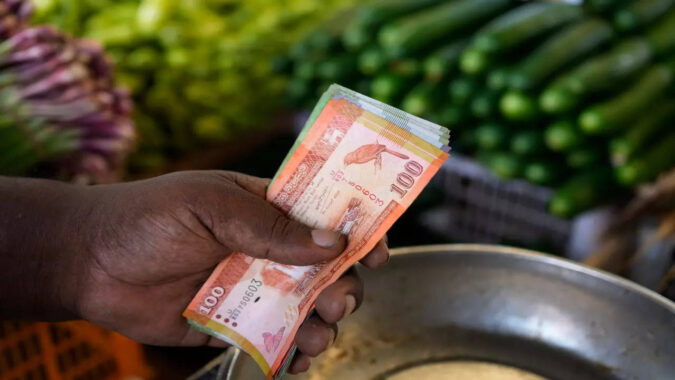COLOMBO: Sri Lanka’s inflation eased to 12 percent in June, official data showed Saturday, the lowest figures since the island nation careened into an unprecedented economic crisis last year.
Sri Lanka defaulted on its $46 billion foreign debt in April 2022 and the public endured months of food, fuel and medicine shortages.
The crisis has eased since, with the government securing a $2.9 billion bailout from the International Monetary Fund in March.
June inflation was the lowest since the 9.9 per cent figure recorded in November 2021.
It is down from 25.2 per cent in May and a peak of 69.8 per cent in September.
“Inflation is expected to reach single-digit levels by early third quarter 2023,” the Central Bank of Sri Lanka said.
This week, the government unveiled a debt restructuring plan which offers a 30 per cent haircut for international sovereign bondholders, who account for more than a quarter of Sri Lanka’s outstanding foreign obligations.
The IMF said last month that Sri Lanka’s economy showed “tentative signs of improvement” but warned Colombo still needed to pursue painful reforms.
Last year’s economic crisis sparked months of civil unrest which eventually toppled then-president Gotabaya Rajapaksa.
His successor Ranil Wickremesinghe has doubled taxes, removed generous subsidies on energy and sharply raised prices to shore up state revenue.
Sri Lanka defaulted on its $46 billion foreign debt in April 2022 and the public endured months of food, fuel and medicine shortages.
The crisis has eased since, with the government securing a $2.9 billion bailout from the International Monetary Fund in March.
June inflation was the lowest since the 9.9 per cent figure recorded in November 2021.
It is down from 25.2 per cent in May and a peak of 69.8 per cent in September.
“Inflation is expected to reach single-digit levels by early third quarter 2023,” the Central Bank of Sri Lanka said.
This week, the government unveiled a debt restructuring plan which offers a 30 per cent haircut for international sovereign bondholders, who account for more than a quarter of Sri Lanka’s outstanding foreign obligations.
The IMF said last month that Sri Lanka’s economy showed “tentative signs of improvement” but warned Colombo still needed to pursue painful reforms.
Last year’s economic crisis sparked months of civil unrest which eventually toppled then-president Gotabaya Rajapaksa.
His successor Ranil Wickremesinghe has doubled taxes, removed generous subsidies on energy and sharply raised prices to shore up state revenue.
